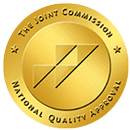Meditation Therapy as a holistic therapeutic technique addresses the emotional aspect of a person’s psyche. We all have natural desires for certain things in life, such as a meaningful relationship, successful career, and reward or recognition for one’s achievements. When these natural desires are wrapped in unwholesome obsessions, they can warp an individual’s perspective and produce unnecessary emotional suffering which may lead to addiction. Mindfulness, or mindful meditation, helps lower stress-related hormones as well as energize the individual through increased self-awareness and contentment.
What does meditation produce?
- Increase in the body’s natural opioids (pain killers)
- Ability to observe and recognize thought patterns behind their behaviors
- Better self-control with proactive decision-making
- Mental clarity and discipline
- Emotional relief from mood swings, depression and other mood disorders
- Strengthened immune system
Meditation Therapy Techniques
Two of the most common techniques used in Western and Eastern practices are mindful meditation and concentrative meditation. The former technique is popular in addiction treatment because it emphasizes self-awareness, which is important when clients need to recognize thought patterns, beliefs, and emotions that originally steered them towards substance abuse. The latter technique directs a person’s attention toward one thing that he/she can focus on, such as listening to their own breathing or silently repeating a mantra over and over for a period of time. Also known as transcendental meditation, this approach helps the individual to achieve mental stability and pure consciousness.
Solitary Meditation vs. Guided Meditation
If you can meditate on your own, you may be asking, “Why do I need a counselor for this?” The presence of a skilled therapist invites accountability and increases the effectiveness of meditation practices. The client can be transparent at any moment about his/her cravings for alcohol or drug of choice, and in that moment the therapist can switch techniques if necessary in order to help the client redirect focus and clear his/her mind.


